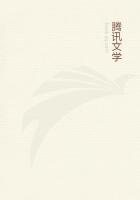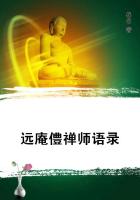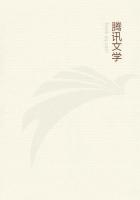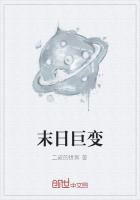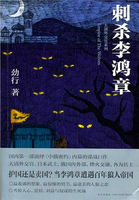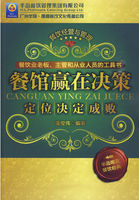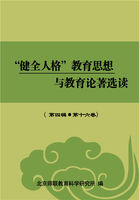(7) Josephus seems to be partly in the right, when he observes here that Uzzah was no priest, (though perhaps he might be a Levite,) and was therefore struck dead for touching the ark, contrary to the law, and for which profane rashness death was the penalty by that law, Numbers 4:15, 20.See the like before, Antiq.B.VI.ch.1.sect.4.It is not improbable that the putting this ark in a cart, when it ought to have been carried by the priests or Levites, as it was presently here in Josephus so carried from Obededom's house to David's, might be also an occasion of the anger of God on that breach of his law.See Numbers 4:15; 1 Chronicles 15:13.
(8) Josephus here informs us, that, according to his understanding of the sense of his copy of the Pentateuch, Moses had himself foretold the building of the temple, which yet is no where, that I know of, in our present copies.And that this is not a mistake set down by him unwarily, appears by what he observed before, on Antiq.B.IV.ch.8.sect.46, how Moses foretold that, upon the Jews' future disobedience, their temple should be burnt and rebuilt, and that not once only, but several times afterward.See also Josephus's mention of God's former commands to build such a temple presently, ch.14.sect.2, contrary to our other copies, or at least to our translation of the Hebrew, 2 Samuel 7:6, 7; 1 Chronicles 17:5, 6.
(9) Josephus seems, in this place, with our modern interpreters to confound the two distinct predictions which God made to David and to Nathan, concerning the building him a temple by one of David's posterity; the one belongeth to Solomon, the other to the Messiah; the distinction between which is of the greatest consequence to the Christian religion.
(10) Whether Syria Zobah, 2 Samuel 3:8; 1 Chronicles 18:3-8, be Sophene, as Josephus here supposes; which yet Ptolemy places beyond Euphrates, as Dr.Hudson observes here, whereas Zobah was on this side; or whether Josephus was not here guilty of a mistake in his geography; I cannot certainly determine.
(11) David's reserving only one hundred chariots for himself out of one thousand he had taken from Hadadezer, was most probably in compliance with the law of Moses, which forbade a king of Israel "to multiply horses to himself," Deuteronomy 17:16; one of the principal uses of horses in Judea at that time being for drawing their chariots.See Joshua 12:6; and Antiq.B.V.ch.1.sect.
18.It deserves here to be remarked, that this Hadad, being a very great king, was conquered by David, whose posterity yet for several generations were called Benhadad, or the son of Hadad, till the days of Hazael, whose son Adar or Ader is also in our Hebrew copy (2 Kings 13:24) written Benhadad, but in Josephus Adad or Adar.And strange it is, that the son of Hazael, said to be such in the same text, and in Josephus, Antiq.B.IX.ch.8.
sect.7, should still be called the son of Hadad.I would, therefore, here correct our Hebrew copy from Josephus's, which seems to have the true reading.nor does the testimony of Nicolaus of Damascus, produced in this place by Josephus, seem to be faultless, when it says that he was the third of the Hadads, or second of the Benhadads, who besieged Samaria in the days of Ahab.He must rather have been the seventh or eighth, if there were ten in all of that name, as we are assured there were.For this testimony makes all the Hadads or Benhadads of the same line, and to have immediately succeeded one another; whereas Hazael was not of that line, nor is he called Hadad or Benhadad in any copy.And note, that from this Hadad, in the days of David, to the beginning of Hazael, were near two hundred years, according to the exactest chronology of Josephus.
(12) By this great victory over the Idameans or Edomites, the posterity of Esau, and by the consequent tribute paid by that nation to the Jews, were the prophecies delivered to Rebecca before Jacob and Esau were born, and by old Isaac before his death, that the elder, Esau, (or the Edomites,) should serve and the younger, Jacob, (or the Israelites,) and Jacob (or the Israelites) should be Esau's (or the Edomites') lord, remarkably fulfilled.See Antiq.B.VIII.ch 7.sect.6; Genesis 25;9,3; and the notes on Antiq.B.I.ch.18.sect.5, 6.
(13) That a talent of gold was about seven pounds weight, see the description of the temple ch.13.Nor could Josephus well estimate it higher, since he here says that David wore it on his head perpetually.
(14) Whether Josephus saw the words of our copies, 2 Samuel 12:31, and 1 Chronicles 20:3, that David put the inhabitants, or at least the garrison of Rabbah, and of the other Ammonite cities, which he besieged and took, under, or cut them with saws, and under, or with harrows of iron, and under, or with axes of iron, and made them pass through the brick-kiln, is not here directly expressed.If he saw them, as is most probable he did, he certainly expounded them of tormenting these Ammonites to death, who were none of those seven nations of Canaan whose wickedness had rendered them incapable of mercy; otherwise Ishould be inclinable to think that the meaning, at least as the words are in Samuel, might only be this: That they were made the lowest slaves, to work in sawing of timber or stone, in harrowing the fields, in hewing timber, in making and burning bricks, and the like hard services, but without taking away their lives.We never elsewhere, that I remember, meet with such methods of cruelty in putting men to death in all the Bible, or in any other ancient history whatsoever; nor do the words in Samuel seem naturally to refer to any such thing.

